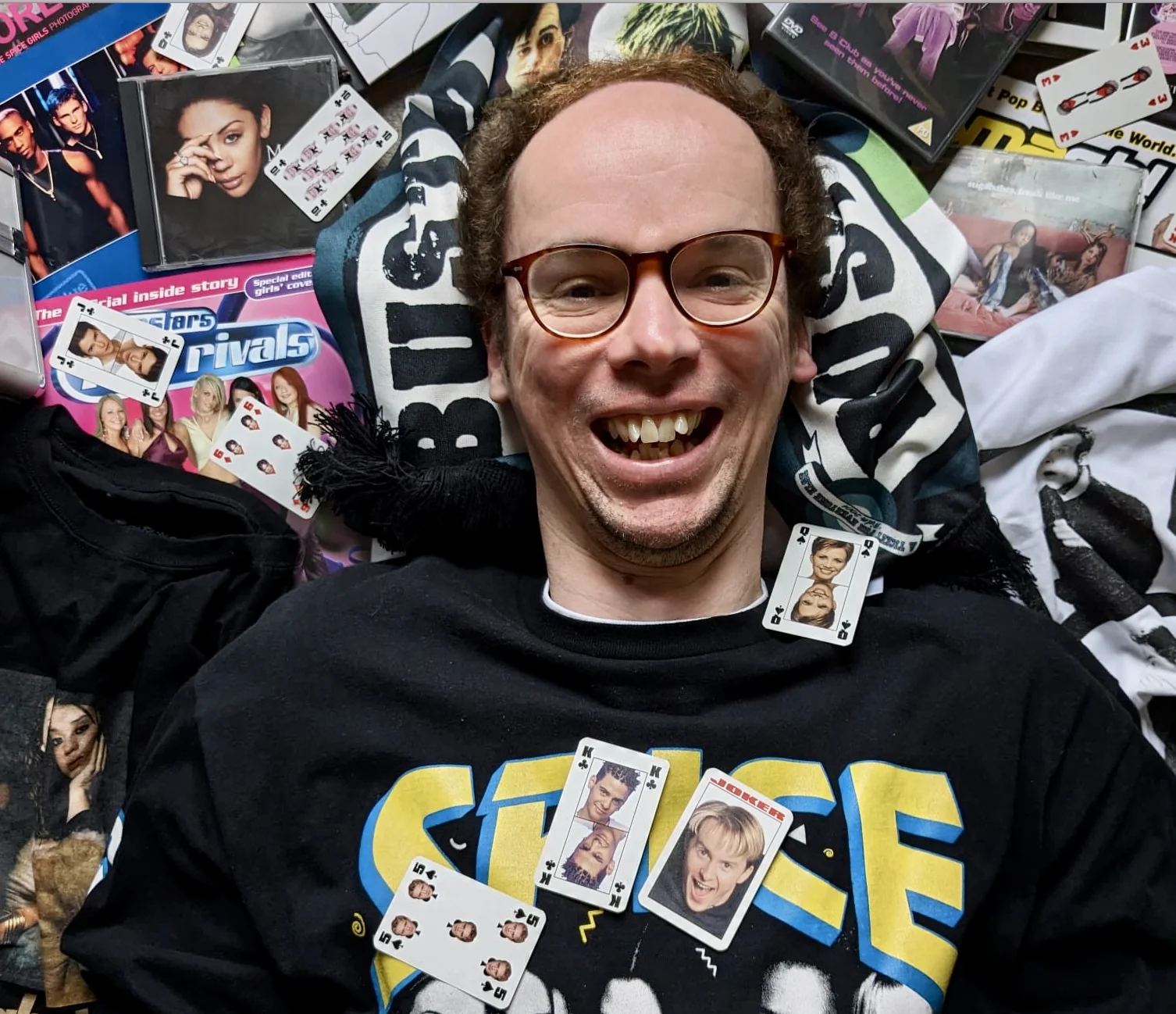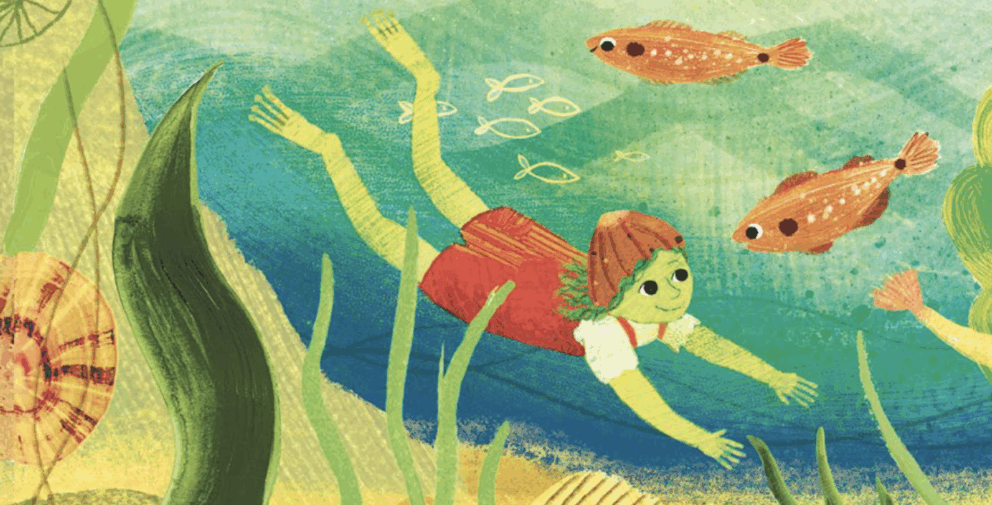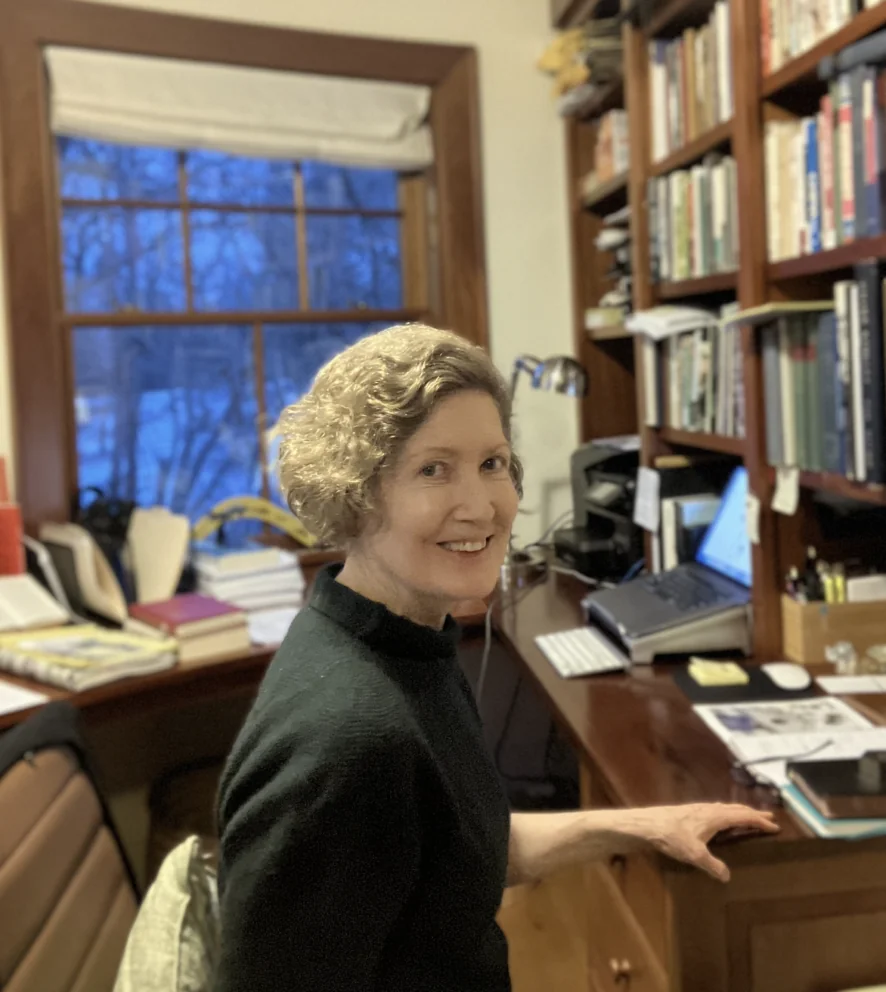
“I dread to think what the world would have been like without Girls Aloud…”
Wannabe, Don’t Stop Movin’, 7 Days… You know the songs; now it’s time to hear the stories behind the hits.
In Reach for the Stars, journalist Michael Cragg speaks to the stars to reveal the highs, the lows, and the hangovers of the glory days of modern turn-of-the-millennium British pop – all told in their own words.
We caught up with Michael – clad appropriately in Girls Aloud tee – to chat about his new book and an era of bonafide pop bangers.
Why did you want to write about this golden age of British pop?
Because no-one else really had! No-one really wrote about pop in a serious way at the time. I thought doing an oral history would be quite a fun way of doing it. I thought it would be interesting to talk about what it was really like in a behind-the-scenes way and show how mad it was too to be part of this rollercoaster of pop, touching on some of the more serious, negative sides that were happening back then. The things we talk about now, but didn’t at the time.
What were you up to at the time? What were your memories as a fan?
I was in my early teens when the Spice Girls came out. I loved their songs. I loved All Saints too. I remember listening to their self-titled debut album all the time. I had it on cassette first and then on CD. But I was also heading towards Indie, so by the time I got to university it was all Radiohead. I didn’t find my people who were into pop music. And I wasn’t writing at the time, so I didn’t communicate that I loved pop in that way. Now with social media, you have so many ways to share what you’re into. But I didn’t get into writing until a bit later.
It was in lockdown that I got back into listening to this music again, and thinking: ‘this is so well-made and well-constructed’. From an annoying muso-point of view: these choruses are so big and the melodies are huge. I wanted to escape into that world.
There was a lot of snobbery both from the industry and the public towards pop at the time. But so many of the songs from the period are undeniable bangers. How much of this book was a rebuke to that snobbery?
I definitely wanted to do that. Not all of it was good, obviously! But I did want to shine a light on the songs and highlight that some of the biggest songwriters and producers still working today started in that period. Max Martin was doing stuff with 5ive and Westlife. Stargate did S Club 7 and Mis-Teeq. Xenomania (Sugababes and Girls Aloud) were this experimental, mad pop factory that made really strange songs Top 10 hits. That doesn’t necessarily happen today. People are still making weird pop music, but it doesn’t go to number one in the charts because so much has changed. Back then you had to have hits, so to make Top 10 singles that were weird was kind of amazing. I wanted to remind people of that. And then on the flipside: just how great a song is Don’t Stop Movin‘ or Say You’ll Be There? I wanted to shout out the songs as much as the people singing them.
One of the joys of this book is seeing all the sliding doors moments that might have changed the course of pop history…
There are so many. If Spice Girls had gone with a Wannabe R&B version – which the label wanted – what would have happened then? If Simon Fuller hadn’t been sacked by the Spice Girls would we have had S Club 7? Or what if the various members of Steps that came before – the ones that hated 5, 6, 7, 8so much that they quit in disgust – had stayed around? Even if Girls Aloud had pushed back against Sound of the Underground – which is a very different song for a TV talent show act to lead with… If they hadn’t gone down that route they likely would have lost Popstars: The Rivals. I dread to think what the world would have been like without Girls Aloud.
A number of bands from the time are reuniting, and there’s phenomenal interest in their return. Why is there such nostalgia for the era? Why does it resonate?
It starts with the songs. The acts that are coming back are the ones with the defining songs from the period. But it’s also all wrapped up in who you were at the time, what you were doing, and memories of going to see these bands and the posters on your walls. The nostalgia is strong. The fact that a lot of them are still going meant it was easier for me to get hold of them. Because I promised my editor a lot. ‘Yeah, I can get a hundred people…’ Luckily, they wanted to do it.
Were the artists you spoke to happy to talk about the darker sides of those days?
I felt like they all had some distance from it. There weren’t the avenues back then to talk about those things that pop stars have now. So I said ‘if you don’t want to talk about it: fine. But if you do then let’s do it in a way that isn’t just pouring over it for the sake of it.’
You can’t shy away from how not nice some of it was. They were living a dream, but that dream wasn’t always the reality. We the public got to see the dream because that was what was projected. And then when X Factor and the TV talent shows came along, they wanted to show off more of the lows and make that part of the narrative. But perhaps that was just as horrible.
But I wanted to end on the highs if possible. The 5ive chapter could have ended with the huge split, but I wanted to finish with them talking about how mad it was: playing to 200,000 people at a festival in Rio with Oasis, and then having a drink afterwards and playing Bop It! with Liam Gallagher…
Slightly surreally, you once supported Lily Allen. If you could have supported one band from the era who would it have been?
Possibly Girls Aloud? But then I’d have to be in The Saturdays because they supported them at the time… Or maybe Mutya-era Sugababes, because then I could hear her sing live at the time and hang out afterwards. I love that story about her leaving before the encore of one of their shows. What a legend.
If you had to create a supergroup from the time, who’s in it?
Nicola Roberts. Mutya Buena. Emma Bunton to balance out the vocals and the attitude. Alesha Dixon. And then Billie Piper. I do wonder if Billie would have lasted longer in that world if she was in a girl band… Nicola Roberts said that she couldn’t imagine what it would have been like as a solo act during the period, and Billie was being sent around the world by herself. Billie in a girl band would have been amazing.
You pulled together an incredible Spotify playlist for the book. What’s your go-to song on the playlist? I’m personally a fan of Girls Aloud’s French-language version of Don’t Speak French.
Girls Aloud have some incredible B-Sides. They were knocking out so many good songs at the time. Some were meant to be singles and got pushed onto B-Sides like Androgynous Girls and Dog Without A Bone. Everyone knows the big ones, but there are loads on there. But if you think of this period: you think S Club 7. They sort of epitomised manufactured, cheesy, bright shiny pop, so Don’t Stop Movin‘ is always a go-to song to raise the tempo and vibes and go back to 90s.
Reach for the Stars is out now with Nine Eight Books.



